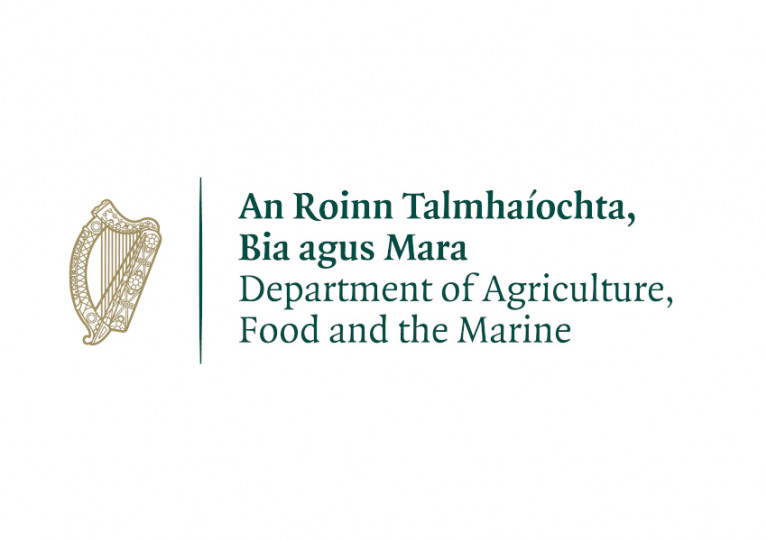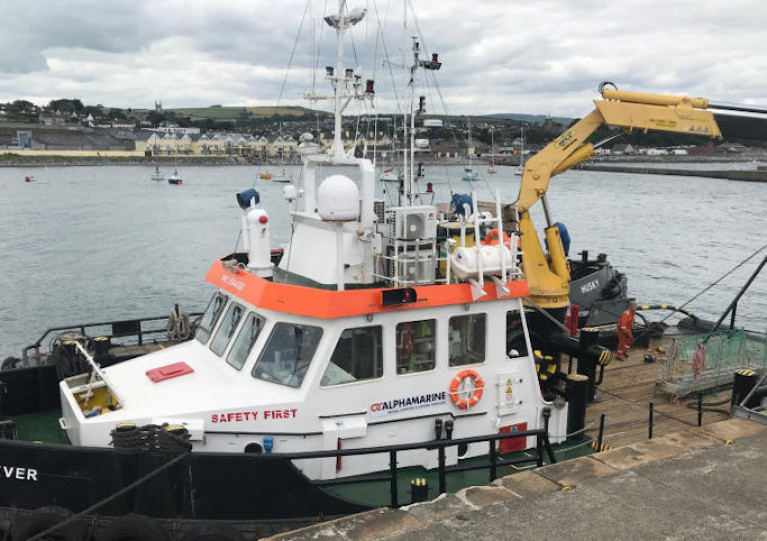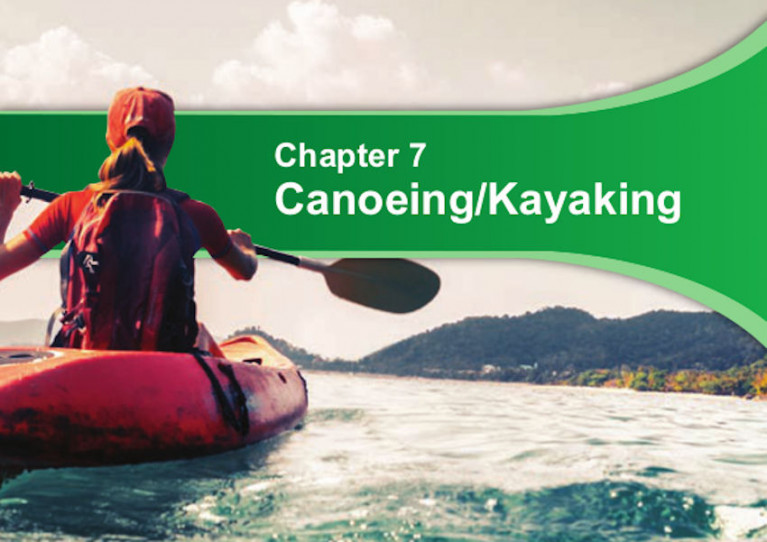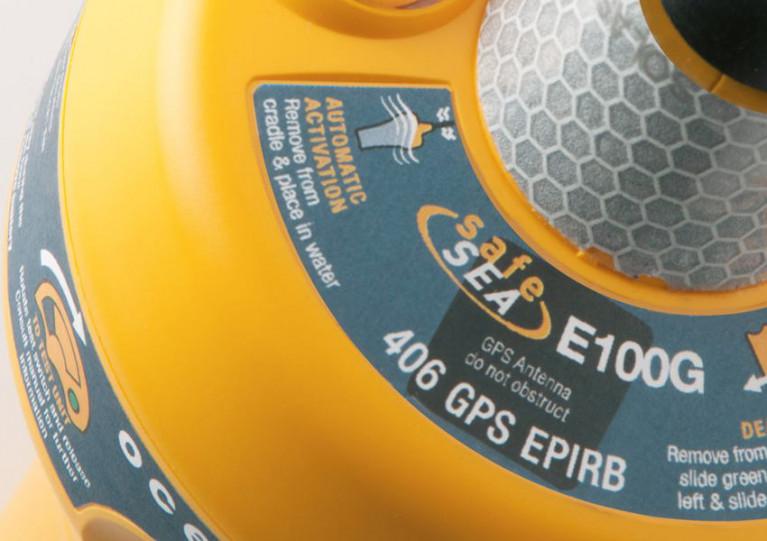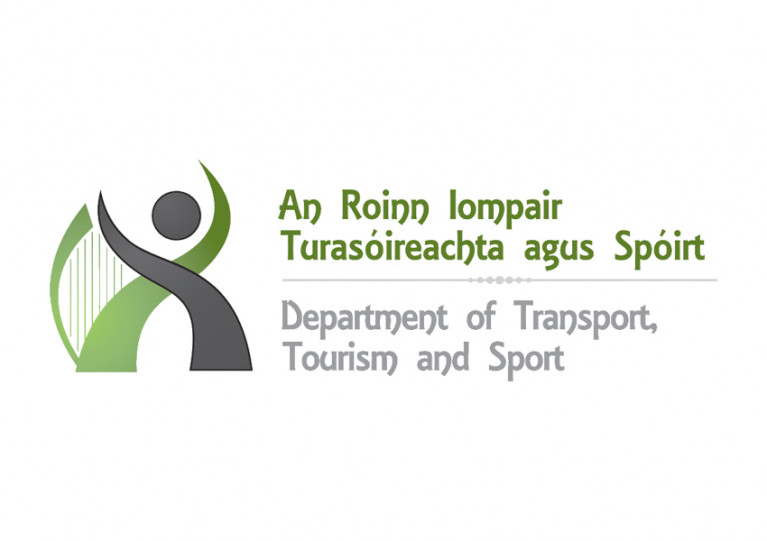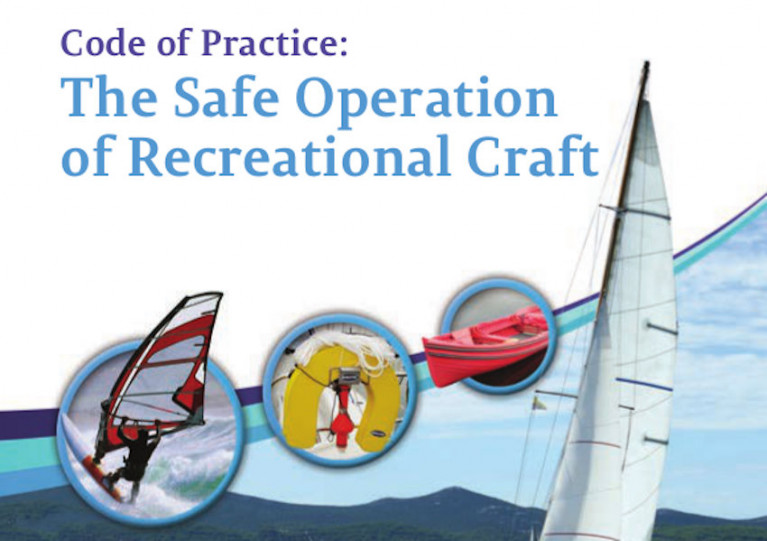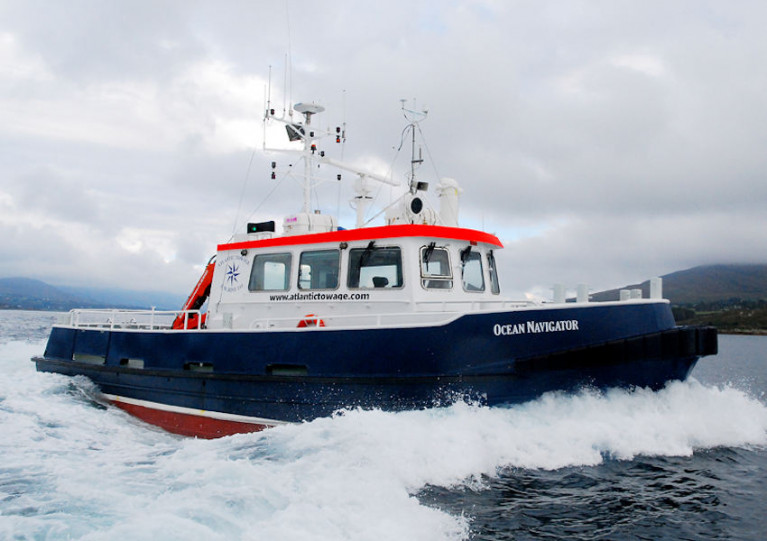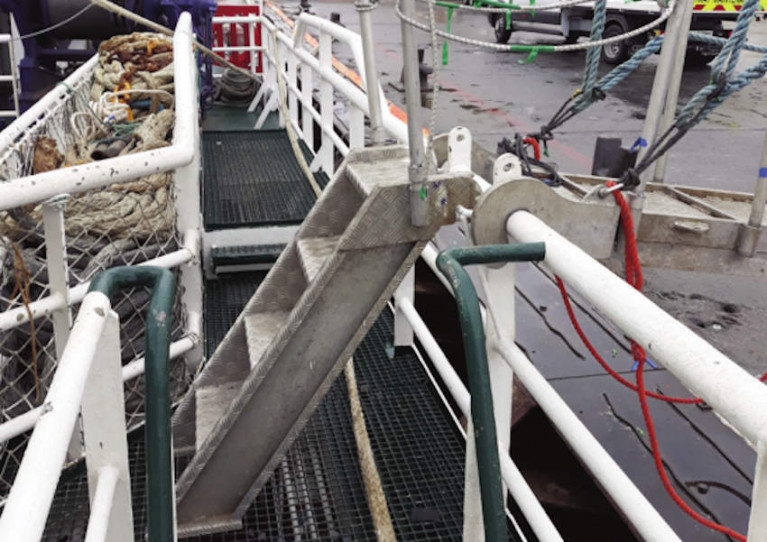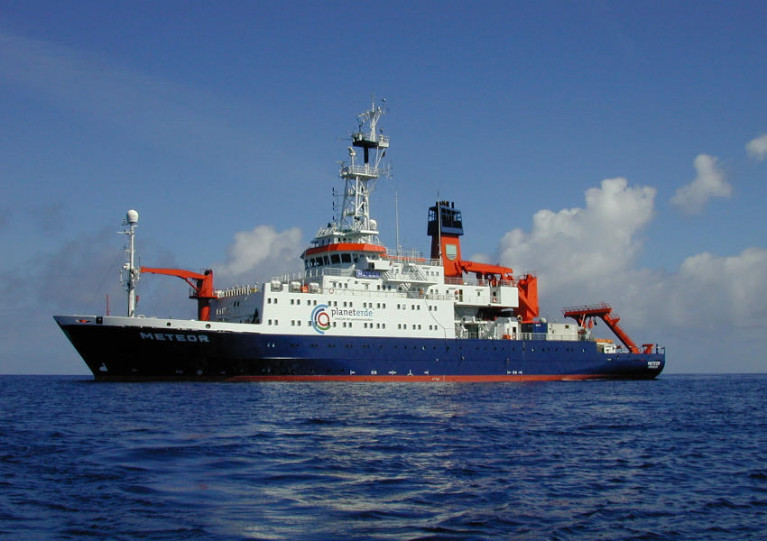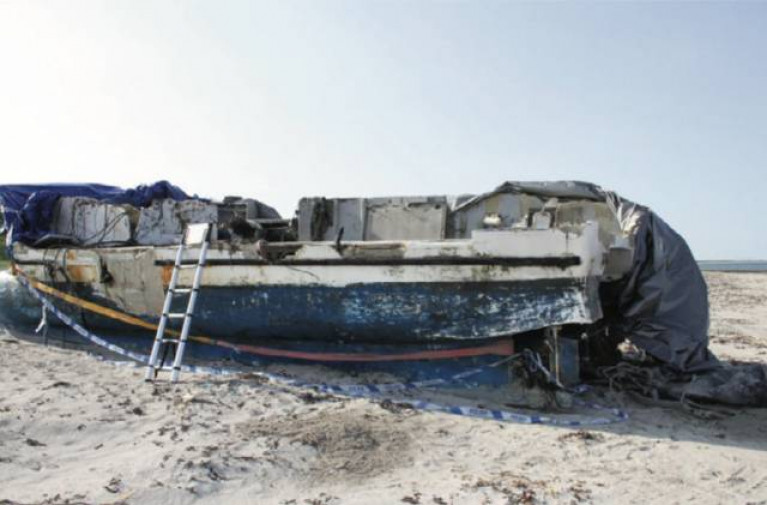Displaying items by tag: Marine Notice
Reminder On Covid-19 Guidance For Domestic Passenger Vessels
The Department of Transport, Tourism and Sport has issued a reminder of guidance for all operators of domestic passenger vessels to prevent the spread of coronavirus on their services.
This includes the Covid-19 Marine Travel Protocol and guidance for ferry services to offshore islands, the Return to Work Safely Protocol, and Fáilte Ireland’s Covid-19 Safety Charter.
Further details are included in Marine Notice No 32 of 2020, which can be downloaded below.
Deployment Of Wave Monitoring Devices Off Wicklow Coast
Metocean devices will be deployed in the Irish Sea off the Wicklow coast) in the coming days, weather permitting, to provide environmental data for the development of the Arklow Bank Wind Park.
Similar to last autumn’s deployment, four separate devices to monitor waves and currents will be deployed, which will include a seabed frame with the sensors mounted on it, an anchoring system, and a surface marker buoy.
The devices will be deployed using either the AMS Retriever (Callsign MEHI8) or Husky (Callsign 2EQI7), both versatile multi-purpose shallow draft tugs. The devices will remain in place for approximately six months, serviced on a three-monthly basis.
During deployment and recovery operations, the AMS vessel will be restricted in its ability to manoeuvre. The devices will be located using yellow special mark buoys which will have the relevant markers and ATON characters.
The location of the devices will be off the Wicklow coastline as detailed in Marine Notice No 31 of 2020, which is available to download below.
Canoeists & Kayakers Encouraged To Review Code Of Practice
Canoeists, kayakers and relevant organisations are encouraged to review the Code of Practice for the Safe Operation of Recreational Craft, following a recent report into the death of a kayaker on Lough Gill.
As previously reported on Afloat.ie, the lone kayaker was believed to have become separated from his Canadian canoe in bad weather on the Co Sligo lough in late January 2019.
The vessel had not grablines to aid recovery after the casualty had entered the water, the MCIB report said, adding that he may have been weighed down by his Wellington boots, and had only a mobile phone and no other means of signalling for help.
The report recommended a Marine Notice highlighting the requirements for kayaks and canoes as set out in Chapter 7 of the Code, and in particular the following:
- Chapter 7, Section 7.1 (Training), page 84 of the Code: Undertake a recognised training course in the correct use of the specific type of canoe you wish to use.
- Chapter 7, Section 7.2 (Prior to entering the water), pages 84 and 85 of the Code: Ensure that you carry a mobile phone or Marine VHF radio in a suitable watertight cover for use to summon assistance in emergency situations.
- Check the hull is fitted with grab loops/towing lines.
- Ensure that you are a competent swimmer and capable of surviving in the areas you operate.
The MCIB also recommends that canoeists and kayakers should ensure that they wear clothing and footwear that will not affect their chance of survival in the water.
In addition, Chapter 7 of the Code of Practice contains general information on personal safety equipment, sea kayaking, river kayaking and canoeing.
Part A of the Code outlines the legislative requirements that apply to all recreational craft or specific types or size of craft, and Part B contains recommended guidelines and best practice for the safe operation of a range of recreational craft including canoes and kayaks.
The Code of Practice is a free document and hard copies can be obtained on request, in both English and Irish, from the Maritime Safety Policy Division at
[email protected]
The Code and individual chapters of the Code are available to view or download from dttas.gov.ie and a list of updates to the 2017 edition of the Code is also available.
Marine Notice No 30 of 2020 is available to download below, as is Chapter 7 of the Code of Practice.
Owners of the Ocean Signal SeaSafe E100 or E100G emergency radio beacons are reminded to perform their unit’s self-test function as soon as possible.
The manufacturer says all of its EPIRBs should be routinely tested on a monthly basis, as per the user manual.
All Ocean Signal beacons are designed to have sufficient capacity to accommodate a monthly self-test over the lifetime of the battery.
However, for those beacons that do not pass the self-test, an exchange process is being offered for affected units.
Details on how to perform the self-test — and seek a replacement if necessary — are detailed in Marine Notice No 29 of 2020 attached below.
Exam Schedule For Certificates Of Competency Now Available
A full schedule of the Irish Maritime Administration examinations for Certificates of Competency as Deck Officers, Marine Engineer Officers, Skippers and Second Hands for the year commencing 7 September 2020 is included in Marine Notice No 28 of 2020 attached below.
Owners and users of a range of pleasure and recreational craft in Irish waters are reminded to keep up to date with the Code of Practice for their safe operation.
The Code highlights the importance of personal responsibility for all those who take to the water.
Each person must take maritime safety seriously, prepare and plan for a safe trip, behave responsibly on the water and be properly equipped so as to be able to respond to any incidents that may arise.
The Code is intended for use by owners, operators and users of all pleasure and recreational craft operating in Irish coastal and inland waters and certain Irish vessels operating offshore, including:
- Sail and motor boats
- Sailing dinghies
- Personal watercraft (eg jet skis)
- Powerboats
- Canoes and kayaks
- Rowing boats
- Charter boats
- Ski boats and dive boats
- Windsurfers, stand-up paddleboard users and other non-powered craft
It contains information on legislative requirements, safe operation and advice on best practice when using a recreational craft.
The Code of Practice was most recently updated in late 2019. The free document is available to download from Gov.ie but hardcopies can be obtained on request, in both English and Irish, from the Maritime Safety Policy Division of the Department of Transport, Tourism and Sport at [email protected]
For more details on the Code, see Marine Notice No 27 of 2020, a PDF of which is attached below.
Developing Site Investigation Methodologies Survey In North Irish Sea From Next Monday
The latest Marine Notice from the Irish Maritime Administration advises that the Developing Site Investigation Methodologies (DeSIRE) Survey will be carried out in the North Irish Sea from next Monday 13 July.
This two-week survey will use seismic refraction and multichannel analysis of surface wave (MASW) equipment, as well as sparker seismic equipment, operated from the Ocean Navigator (Callsign EI018) and Fionn Mac Cumhall (Callsign EIDN2).
Work will be performed during daylight hours in accordance with safe operating practices regarding MMO procedures and cognisant of fishing gear. Both vessels will display appropriate lights and signals.
For further details, including co-ordinates for the survey area and contact information, see Marine Notice No 26 of 2020 attached below.
The latest Marine Notice from the Department of Transport, Tourism and Sport reminds fishing crews of the dangers associated with boarding and transiting across vessels, especially under the influence of alcohol.
The move is in response to recent reports from the Marine Casualty Investigation Board (MCIB), which found that alcohol was a factor in two unrelated incidents in Killybegs, Co Donegal in March 2019 and Rosslare, Co Wexford in May 2019, as reported by Lorna Siggins on Afloat.ie last month.
The notice also reminds of the duty of care on the part of owners and skippers “to provide a safe means of access to vessels while in the harbour and that a gangway or other suitable means, providing an appropriate and safe means of boarding a vessel, shall be made available”.
In addition, all those accessing vessels or working on exposed decks “whether at sea, in harbour or combing two and from moorings” must wear a personal flotation device, or PFD, which “will increase your chance of survival in the event of entering the water”.
The department highlights the risks associated with the consumption of alcohol and/or drug consumption and the dangers associated with boarding and transiting across vessels.
“It is evident from the recent MCIB reports that alcohol consumption continues to be a significant factor in marine incidents,” it says.
“A number of incidents have occurred where diminished human performance due to the effects of alcohol consumption have been primary causes or contributing factors, leading to the loss of life in some cases.
“Alcohol speeds up the rate of body cooling and thus increases the risk of hypothermia in the event that you fall into the water.”
Marine Notice No 25 of 2020 is available to download below.
Two scientific deep-sea moorings deployed at the Goban Spur off the southwestern continental shelf last year will be recovered and redeployed next week.
German research vessel Meteor (Callsign DBBH) will be involved in the redeployment on behalf of the University of Bremen and the German Federal Maritime and Hydrographic Agency (BSH), which is scheduled to begin next Monday 29 June and conclude Saturday 4 July, as part of scientific cruise M164 (GPF-19-1-105).
Similar to their current deployment, the deep-sea moorings will stay in the water for a period of about 13-14 months (to July/August 2021).
Both have been anchored by ~1,000kg bottom weights. Scientific instruments are attached at different depths to ropes and chains. Sub-surface floatation bodies will keep the moorings upright.
As this is sensitive scientific equipment, it is kindly requested that fishermen and marine operators engaged in such activities as bottom trawling or laying of static gear avoid the locations concerned to avoid damaging the equipment or damaging fishing gear.
Details of the locations of these dee-sea moorings and contact information are included in Marine Notice No 24 of 2020, which is available to download below.
The Department of Transport, Tourism and Sport has issued an amendment related to stability requirements in the Code of Practice for Small Fishing Vessels of less than 15m length overall.
The Code of Practice is currently under review, and a revised version will issue later in the year. In the meantime, boat operators are advised in a new Marine Notice to note the change in procedure with regard to measure the stability of small fishing vessels, which will take effect immediately.
In essence, it clarifies that existing vessels (keels laid prior to 1 May 2004) undergoing both a roll test as described in Annex 1 and inclining experiment as per the provisions of Annex 7 for new vessels (after 1 May 2004), but are not required to comply with both tests.
Where the “strongly recommended” stability standards described in Annex 7 are not applied, then the vessel shall be subjected to a roll test as described in Annex 1, with the vessel in ‘normal departure port condition’ and typical ‘arrive port condition’.
Marine Notice No 23 of 2020 is available to download below.



























